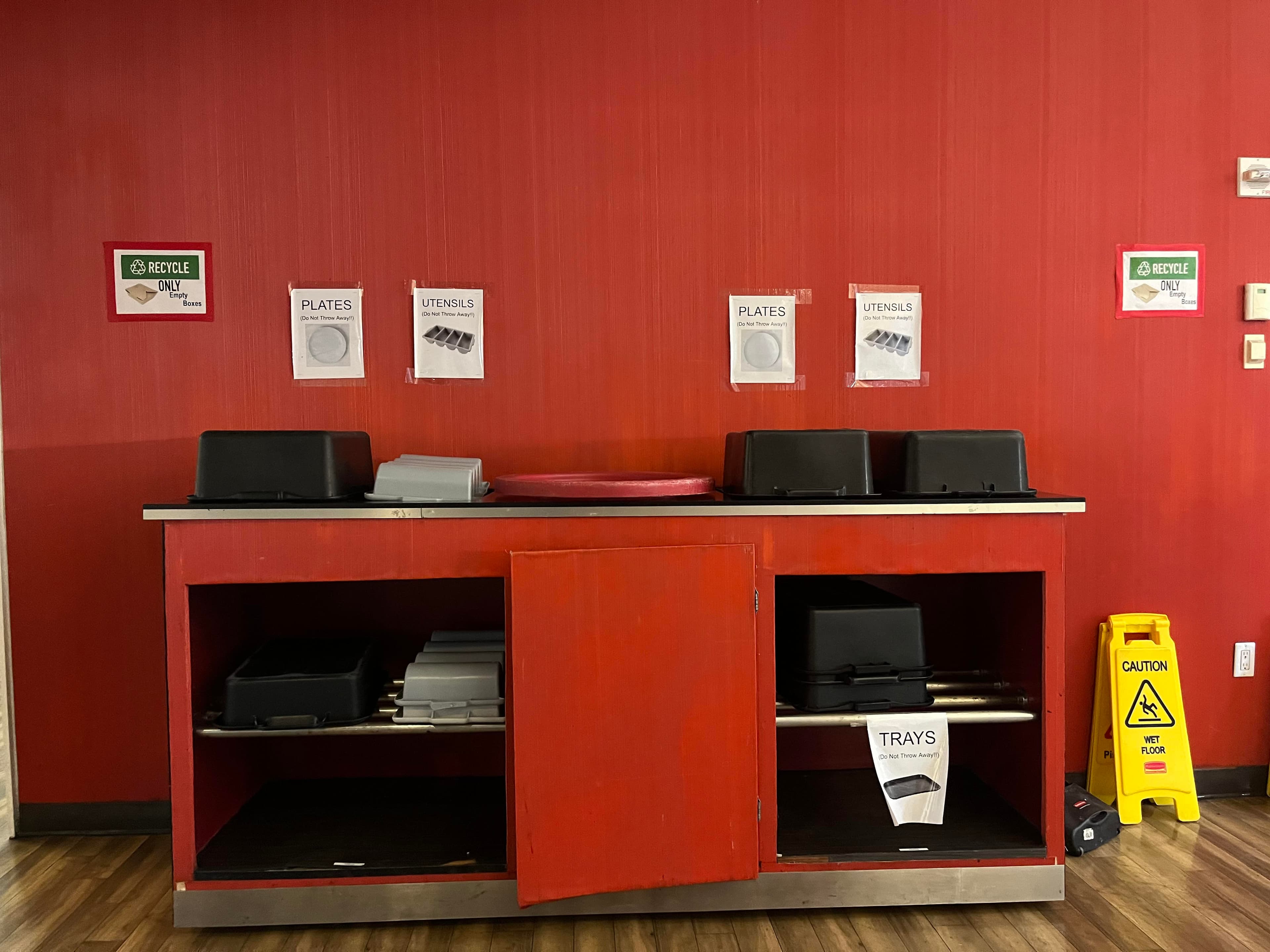
One of the benefits of being a Léman student is having access to quality lunches daily. However, a 2023 Bullhorn survey conducted with Léman’s students and staff found that 92% of Léman students and staff throw out at least a portion of their food. So what is Léman trying to do about this food waste? Lev Feldsher and I asked this question to Susanne Santos, the Director of Food Services here at Léman, late last school year.
First, we discussed the production side of making lunch. She prefaced with the fact that the unpredictable number of students choosing to skip the meals at school and go out for lunch becomes a challenge when trying to anticipate the amount of food needed each day.
“For the most part we try to order exactly what we need,” but she adds that leftovers can be put in the hotbar, salad bar, or frozen/repurposed. On the service side, she says “We don’t give you a giant plate to start [with], we give you one recommended portion size…for those who want a little bit more, they can come back for seconds.”
While this can be true at times, the survey showed that 56 percent of students and staff surveyed said they threw out some of their food because there was too much to finish. Many of the comments in the survey also suggested smaller portions or self-serving so students could get the amount of food they need. This could most likely be solved with a “just a little bit please!” and communicating with the servers.
However, when it comes to students throwing away their food, Santos says; “That’s a little bit harder for us to keep track of because you know we're not here seeing what’s being thrown away.” The survey showed that five percent of students and staff take plates with food that they know they will not eat often, and 18% do sometimes.
We then discussed what to do with the leftover food. When asked if any of the leftovers were given to faculty or donated, to which she answered that food is often given to the cleaning crew and overnight staff. While they have tried to donate food to organizations such as City Harvest, the school does not over-support a compost bin, so this is definitely something that could be established in the future.
Santos finished off the interview by saying, “I think that we are doing almost everything we could on our end…and its constant adjustment on what we see and the feedback we get.”
On the student end, it is important to not take food you know you will not eat (yes, even if it means skipping the annoying lunch line!), and not be wasteful with the food.
Whether it's quesadillas, chicken, noodles, or any of the cafeteria’s vast cuisines, it is important to be aware of your consumption.